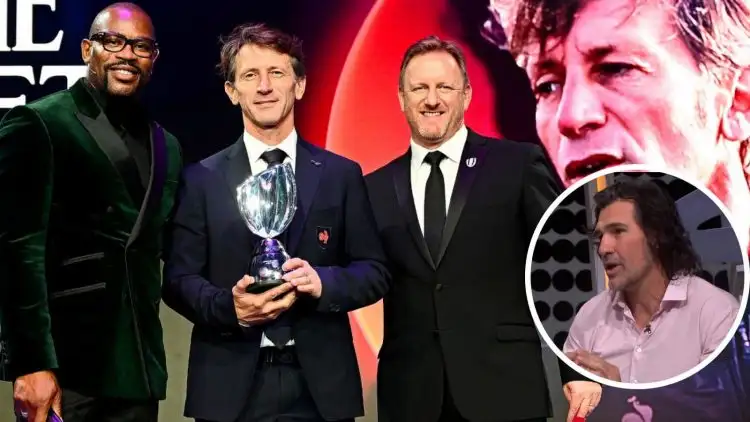Springboks legend Victor Matfield expressed his surprise and frustration over the focus placed on rugby sevens during the recent World Rugby Awards ceremony. Traditionally, the Men’s 15s Player of the Year award has been the event’s highlight and the final award of the night. However, this year, that honor went to Antoine Dupont as Men’s Sevens Player of the Year, signaling a shift in emphasis from the XVs game to sevens.

Matfield, who was part of the selection committee, criticized the decision during a discussion on SuperSport’s Final Whistle. He highlighted that this change marked a departure from tradition, as the XVs game has always been rugby’s centerpiece due to its role as the main revenue generator, especially during events like the World Cup.
Additionally, the Coach of the Year award went to France sevens coach Jérôme Daret instead of South Africa’s Rassie Erasmus, which angered many Springboks fans. Matfield suggested this decision might have been an attempt to balance recognition between the northern and southern hemispheres. He speculated that with the Springboks dominating many categories, awarding Daret may have been a move to provide acknowledgment to the northern hemisphere.
Matfield also noted a strong push during the event to highlight women’s rugby and the sevens format, which he supported as positive steps for the sport. However, he maintained that XVs rugby remains the central attraction, and Erasmus’s record and achievements with the Springboks merited the Coach of the Year title.
Another point of contention for Matfield was the ongoing exclusion of prop forwards from Player of the Year nominations. He cited the contributions of Ox Nche, a loosehead prop instrumental in South Africa’s World Cup success, arguing that players in such roles deserve more recognition for their impact on the game. He criticized the bias toward fly-halves, loose forwards, and second rows in award nominations, overlooking the crucial contributions of players excelling in the “dark arts” of scrummaging.
This sentiment resonates with the broader debate over whether World Rugby appropriately acknowledges the various elements that contribute to the sport’s success, both at individual and team levels.